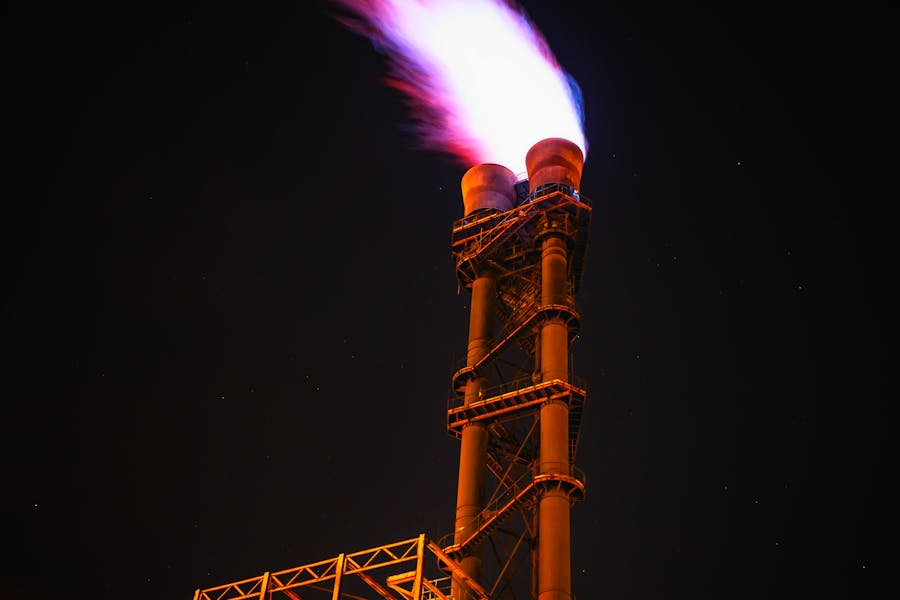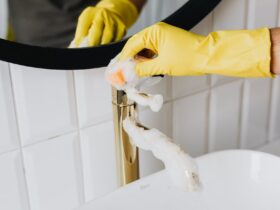Gas lines are a vital component of any home, supplying energy for cooking, heating, and more. However, like any other system, they aren’t immune to wear and tear. Aging pipes, environmental factors, and improper maintenance can lead to significant issues that might compromise safety. Recognizing the signs that it’s time to replace your gas line is crucial to prevent accidents and ensure your home remains safe.
Persistent Gas Smell in or Around Your Home
A strong, persistent smell of gas is one of the clearest indicators of a gas line problem. Natural gas is odorless, but utility companies add a chemical called mercaptan to give it a distinct “rotten egg” smell. This smell acts as a warning for leaks.
What to Do:
- If you notice the smell of gas, leave your home immediately and avoid using electronics or open flames.
- Call your local gas company to report the issue and shut off the gas supply.
Important: If the leak is due to old or corroded pipes, replacement may be necessary. This is especially critical if multiple leaks have been repaired in the past.
Increased Gas Bills Without Explanation
If your gas usage habits haven’t changed but your utility bills keep rising, it could be due to a leak in your gas line. Even a small leak can lead to significant energy loss over time, which will reflect on your monthly bill.
How to Detect This:
- Compare your recent bills with past ones to spot any unusual spikes.
- Check if other appliances are operating efficiently. If all appliances are working normally, the gas line may be the culprit.
Replacing the gas line can restore efficiency and reduce unnecessary expenses.
Visible Damage or Corrosion on the Gas Line
Over time, gas lines can deteriorate due to environmental exposure, moisture, or simply age. Rust, cracks, or other visible damage are signs that the gas line is weakening and may soon fail.
Warning Signs to Look For:
- Discoloration or flaking on the gas line’s surface.
- Small cracks or breaks in the pipe material.
- Loose connections or joints in the gas line.
When these issues are present, repairing the line might only offer a temporary solution. A full replacement ensures long-term safety and reliability.
Dead or Dying Plants Near the Gas Line
If you notice patches of dead grass, plants, or shrubs near where the gas line is buried, it could indicate a leak. Gas leaks can prevent plants from receiving oxygen, causing them to wither and die.
Key Indicators:
- Unexplained brown or yellow patches on your lawn.
- Plants dying in a concentrated area, despite proper watering.
This is a subtle yet significant sign that your gas line may need immediate attention. Ignoring it could lead to more extensive damage or even safety hazards.
Old Gas Lines or Frequent Repairs
Gas lines, like all infrastructure, have a lifespan. Most gas lines last around 20-30 years, depending on the material and environmental conditions. If your home’s gas line is older than that, or if you’ve had frequent repairs in recent years, it might be time to consider a full replacement.
Why Frequent Repairs Signal Bigger Problems:
- Repairs address immediate issues but don’t resolve underlying wear and tear.
- Older lines are more prone to developing new leaks, costing you more over time.
Upgrading to a new, modern gas line can save money and provide peace of mind.
The Importance of Professional Gas Line Replacement
Replacing a gas line is not a DIY project. It involves significant risks, including potential gas leaks, fire hazards, and legal regulations. A licensed professional will ensure the job is done safely and complies with local codes.
What a Professional Service Includes:
- Inspecting the current gas line for damage and weak points.
- Replacing old or corroded pipes with durable, up-to-date materials.
- Pressure testing the new line to ensure no leaks are present.
- Ensuring proper connections to appliances and gas meters.
Super Brothers specializes in gas line replacement and repair, ensuring that your home remains safe and efficient. A professional inspection can identify issues before they escalate, saving you time and money.
How to Prevent Gas Line Issues
While some problems are unavoidable due to aging infrastructure, regular maintenance can reduce the risk of gas line failures.
Tips for Maintaining Your Gas Line:
- Schedule Regular Inspections: Annual or biannual inspections can catch problems early.
- Protect Outdoor Lines: Ensure that exposed gas lines are shielded from weather and accidental damage.
- Monitor Usage: Keep an eye on your gas bills and appliance performance for signs of leaks.
- Avoid Digging: Always call your utility company before any landscaping or digging to avoid damaging buried gas lines.
Preventive care not only extends the life of your gas line but also ensures your home’s safety.
What Happens If You Ignore the Signs?
Neglecting gas line issues can lead to serious consequences, including:
- Gas Leaks: A small leak can turn into a large one, putting your home at risk of explosion or fire.
- Health Risks: Prolonged exposure to gas leaks can cause dizziness, nausea, and other symptoms due to lack of oxygen.
- Higher Costs: Delaying replacement often leads to more expensive repairs and higher utility bills.
Addressing gas line problems promptly can save you from these risks and provide a safer living environment.
When to Call a Professional
If you notice any of the signs mentioned above, it’s time to call a licensed plumber or gas line expert. Whether you suspect a leak, see visible damage, or are dealing with an aging system, a professional can assess the situation and recommend the best course of action.
Super Brothers offers expert gas line inspection, repair, and replacement services. With years of experience, we ensure every job is done with the highest level of safety and efficiency.
Gas lines are essential to your home’s functionality, but they require proper care and maintenance. By recognizing the signs of a failing gas line early and taking swift action, you can avoid costly repairs and ensure your home remains a safe and comfortable place for your family.








Leave a Reply